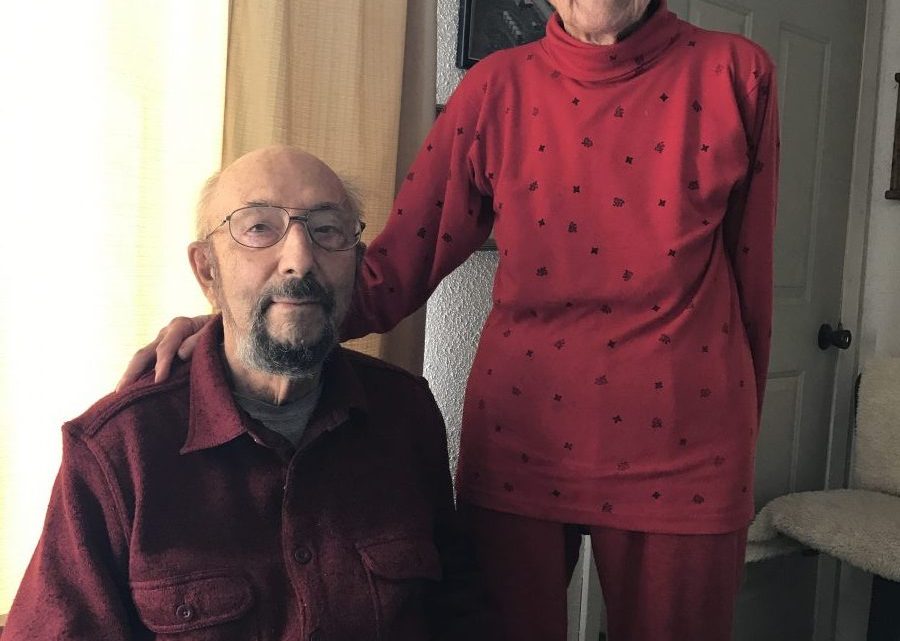Alfred Schrenk was 18 when he received his first induction into the U.S. Army. Within a few days, though, he received a three-month deferment because he was growing grain. Figuring going to war was inevitable, he sold his 10 milk cows and readied for duty. But Schrenk’s father was in poor health and likely wouldn’t get along well without Schrenk. Soon another continuous deferment was received that lasted until the end of the war. The year was 1944 and he thought he had escaped war.
Shortly after Schrenk was married, Uncle Sam called on him again. “There was no deferment this time,” says Schrenk, “This was the Korean War.” He reported to Fort Riley, Kansas, for basic training, enlisting as a medic. “I was prepared. I was ahead of the rest of my [medic] buddies. However, I found myself being trained as a cook.
“After six weeks of training as a cook, more were shipped out [to Korea]. Some of us were kept back for advanced training. That’s where we learned to cook pastries, and that’s when my belt got tight. We didn’t wear our army uniform. When we had to [wear it], I couldn’t get my belt together.”
Schrenk’s next appointment was to Fort Sam Houston in San Antonio, Texas. He was assigned as a cook at the mess hall. His training had been completed so he went right to work. Soon he was put in charge of KP (kitchen patrol) and other details around the premises.
“I had a bunch of men to oversee and not much cooking to do anymore,” says Schrenk. They were feeding 4,000 men with “a bunch of cooks, more than we needed.”
Then there was a change of personnel. “The new general who took charge of the camp was determined to make things more efficient. He shipped out all but four of the cooks along with 3,000 men.”
A new shipment of 3,000 inductees soon arrived, but no cooks. “I don’t know how we did it. We ran short on food. We had to rustle up extra supplies. We worked day and night. If we got three or four hours of sleep, that’s all we got. I was told, ‘Alfred, we know you keep Sabbath but we can’t get along without you.’ I responded, ‘I know, I have been praying about it. I’ll work as long as I dare.’ I went back to the barracks to catch up on a little sleep. I lay down with a prayer and was out. At midnight, I was all of a sudden wide awake. The thought came, Alfred, you grew up on a farm. You had livestock. Cows had to be milked and they didn’t suffer on the Sabbath, and these are hungry men. I was dressed like that and I dug right in. We were slowly given more cooks until I was put in command.”
I’ll do anything to save a life, but I cannot take a life
“After we learned to do our marching exercises at Fort Riley, we were brought out early one morning to stand at attention. It was where they kept the equipment. There were tables with notches and rifles all the way around. As each name was called, we were to receive a rifle. The rifle’s serial number was then associated with that person.” But when Schrenk was 17 he had attended a month-long training program at an Adventist church to prepare him as a conscientious objector.
The officer ordered Schrenk to stand at attention while he took a gun from the rack. He was going to throw it to him. If Schrenk let it drop it was the same as disgracing the American flag or the nation. Schrenk decided he needed to say something quickly. “Sir, I respect your rank and office and I respect you. I’ll do anything to save a life. Put me anywhere I can save a life, but I cannot take a life.” The general responded, “You are in the Army now. You do as you are told.” Reported as refusing to comply with an official’s orders, Schrenk was court-martialed.
You have privileges few ever get
The officer ordered Schrenk to march to the barracks. “Stay at your bunk until you are called.” That was on a Monday. Schrenk did a lot of praying while there. He expected to be ridiculed by fellow recruits in the barracks, but instead they told him they wished they had the guts to do what he did.
On Friday, he was called to follow an officer to headquarters. While still outside, he was told to stand at attention until called in. The officer went inside. “I waited and waited. Finally, he came out. He didn’t look at me. ‘Go in,’ he said. He went around a building and disappeared.” Schrenk went in to a clerk seated behind glass.
“I told the clerk I was to report but I didn’t know to whom.” She took him to the commanding officer who asked him, “What is the problem?” Schrenk told him. The commanding officer asked about Schrenk’s beliefs. “Finally he said, ‘I understand. I have the highest respect for Seventh-day Adventists. My wife is an Adventist. In fact, I should be a Seventh-day Adventist myself. Here is a note to take to the clerk to issue you full weekend passes. You have privileges few ever get.’”
Later Schrenk was threatened with court-martial because he wouldn’t attend classes on Sabbath, but God continued protecting him. “After a stiff and stern grilling, the incident was wiped from my record,” says Schrenk.
Schrenk worked as a cook or cook supervisor at Fort Sam Houston until he was honorably discharged. Now in his 90s, he and his wife Evangeline have many stories of God leading and blessing in their lives. In addition to serving their nation, they have farmed, raised four children, worked for Christian Record Services and been active in their local church.









